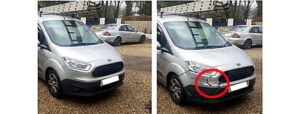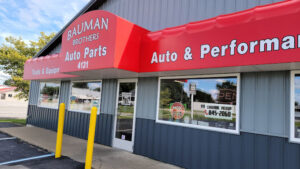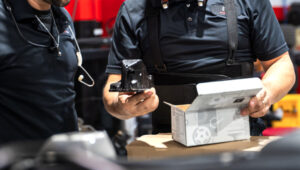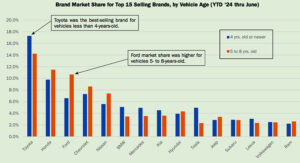Remember endless calls to parts’ houses, vehicle dealers and price increases due to Covid and scarcity? Those times may be back again.
Remember the Covid days? When you waited forever for parts, if they were available at all. The endless calls to parts’ houses and vehicle dealers? Prices increasing due to scarcity and inflation? Well, hold on, those times may be back again.
With the UAW strike, parts are also impacted. The vehicle manufacturing plants, parts distribution points and more are currently shut down and there may be more. Your writer isn’t wading into the muddy waters of who is right and who is wrong. But let’s face it, “parts are parts,” and if you are unable to get them it impacts your business and customers.
I’ve heard some in the industry say that this will impact only car dealers not us. But it will impact all of us. Here’s why (the secret).

The part maker may be the OEM vehicle maker. Or, as it is in many cases, it is what we may consider an aftermarket supplier who makes and sells the parts to both the OEMs and the independent warehouse, retailer or jobber. It is true for things like engine valves, camshafts, light bulbs, brake parts, chemicals and so much more. The parts also make their way into the OEM aftermarket parts.
All these companies wish to serve the aftermarket as well as possible. Like the old 99% first call promise. However, much of their volume is based on their vehicle maker’s sales. As a result, especially in light of “Just in Time” (JIT) practices still in place, there may be precious little inventory sitting on the maker’s shelves. Warehouse, retailers and jobbers don’t stock more than their algorithm’s call for.
What does all of this mean for you? The return to Covid parts days quite possibly. As the strikes wear on, the availability of parts and chemicals may be heavily impacted at the dealers, warehouses, jobbers and retailers. It is time to consider what you did to eke through the Covid.
At this point, seems some things may be helpful:
- Consider putting in assortment cabinets in for consumables such as oil filters, light bulbs, brake parts, etc., to make sure you have some back-up or buffer wait times.
- Start sharing the possibility with your repair and parts customers now. Let them know it’s not too bad yet, but it is a possibility. Could be now’s the time to do some basic maintenance.
- Beef up chemical stocks like oil. The manufacturers hate this because it will basically just rob future sales. But it sure beats not having what you need.
- Repair businesses, be talking with your part’s suppliers. Welcome dealer visits from them as well as manufacturer reps. Ask, listen and get a feel for how things are going.
As an industry we must be thinking about our world today. Whether it is Covid, a vehicle maker strike, a parts manufacturer strike, God forbid a terrorist attack here or elsewhere, a global event, things are goofy now.
There are growing numbers of reasons for the parts industry to be interrupted. As well the kinds of parts are changing with new technologies. Though it appears that the EV deal is not growing and that the market is already saturated in the U.S., my opinion, there are some on the street.
The demands on all of us are growing daily. As they did with vehicle computerization, fuel injection, lighting changes, driveline technology and so much more. The aftermarket will handle these demands. Take this is a challenge, not a disaster.
The key to our success as an industry will be communication (such as that offered by Aftermarket Matters), collaboration and determination. Dealers working with independents and the reverse. Retailers, jobbers and warehouses talking and helping each other. All of us staying in communication with the part’s makers to keep the pipelines full and parts plentiful. Note here … learned years ago in school, do not discuss price. It’s illegal. But let’s get going on all of the rest.
At a young age, industry veteran Tom Langer started detailing cars for his family’s dealerships, which then led to work in the jobber and warehouse business, along with a machine shop and auto body shop. He held a variety of positions with an auto parts manufacturer for 10 years, and remained in the industry working with shops, warehouses and manufacturers in research and more.












Comments are closed.